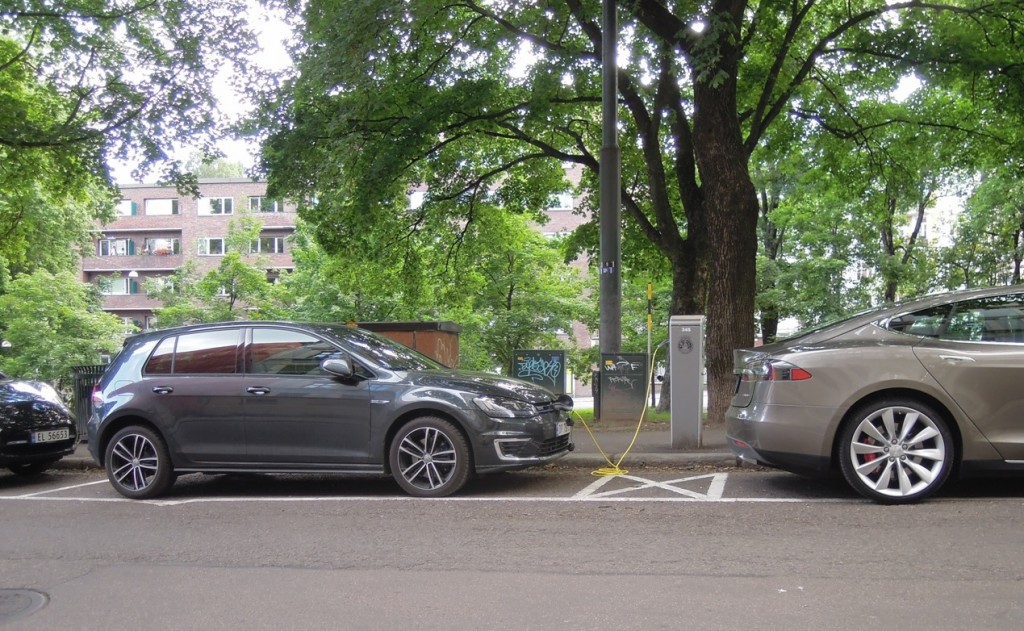Thanks to a combination of government incentives and public enthusiasm, electric cars make up a higher portion of new-car sales in Norway than in any other country.
As of May, there were more than 105,000 plug-in electric cars registered in the Scandinavian country of 5 million people.
That makes Norway possibly the best place in the world to study the habits and preferences of electric-car owners.
DON'T MISS: Cars To Vanish From Downtown Oslo Before 2020 (Oct 2015)
Some interesting insights were indeed gleaned by a recent survey of around 8,000 vehicle owners in Norway conducted by the country's Institute of Transport Economics (via Charged EVs).
The survey included responses from 3,111 battery-electric car owners, 2,065 plug-in hybrid owners, and 3,080 owners of non-hybrid gasoline and diesel cars.
One of the main findings was that there is significant overlap between some of these categories, with the majority of electric cars being part of two-car households.
![Electric-car rally in Geiranger, Norway [Image: Norsk elbilforening via Flickr] Electric-car rally in Geiranger, Norway [Image: Norsk elbilforening via Flickr]](https://images.hgmsites.net/lrg/electric-car-rally-in-geiranger-norway-image-norsk-elbilforening-via-flickr_100530088_l.jpg)
Electric-car rally in Geiranger, Norway [Image: Norsk elbilforening via Flickr]
Of the electric-car owners surveyed, 71 percent also owned a gasoline or diesel car, 4 percent also owned a plug-in hybrid, and 4 percent owned a second electric car.
The electric-car model most in single-car households was the Tesla Model S, which was twice as likely to be the only vehicle in a household.
The survey also found that owners of all-electric cars and plug-in hybrids had different transportation needs, although both were at least somewhat motivated by economic and environmental considerations.
MORE: Two-thirds of new cars in Norway last month were hybrid or electric
In addition, electric-car owners value the incentives and perks—such as exemption from road tolls—that come with those vehicles, according to the survey. They also tend to be younger, have more children, and own more cars than owners of other vehicle types.
Despite continuing concerns over range anxiety in most markets, the survey also showed that electric-car drivers actually travel slightly more per year than owners of plug-in hybrid, gasoline, or diesel cars.
Electric cars averaged 15,500 kilometers (9,631 miles) per year, compared to 15,200 km (9,444 mi) for plug-in hybrids and 15,000 km (9,320 mi) for gasoline and diesel cars.

Oslo street scene: Nissan Leaf, Volkswagen e-Golf, Tesla Model S, July 2015
Those electric-car drivers averaged 20 percent less range than official ratings in the summer, and 30 percent less in the winter.
Plug-in hybrids, meanwhile, were found to drive on electric power 55 percent of the time.
Finally, when it comes time to buy a new car, it seems the majority of Norway's electric-car drivers are happy to stick with plug-ins.
Only about 2 percent of plug-in hybrid buyers said they would not buy a plug-in car again, while the attrition rate or all-electric cars was less than 1 percent.
_______________________________________________












